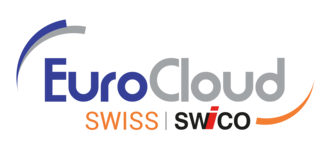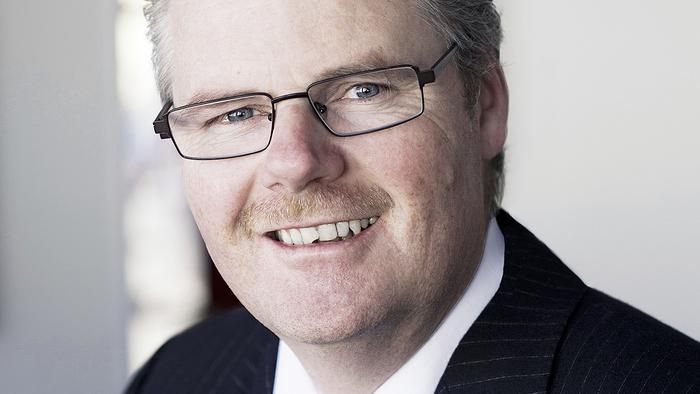We at EuroCloud Swiss view cloud computing as a fundamental requirement for the use of new technology trends like artificial intelligence (AI) and Deep Learning, Big Data, Blockchain, or the Internet of Things (IoT), which in turn are the foundations of the digital future. The IoT in particular is not merely changing existing business processes; with its Smart Services, it is opening up entirely new commercial potentials for many businesses that currently manufacture products or realize projects. These Smart Services include monitoring solutions for personal health care, surveillance systems for construction sites, intelligent measuring devices, networked vehicles, and remote monitoring systems for manufacturing and agricultural equipment-to name only a few.
The offering in terms of sensors, devices and systems with innovative machine-to-machine and IoT applications is growing constantly and has by now become affordable for many companies. Such networked components allow huge volumes of data to be recorded, consolidated and analysed. Through this continuous stream of information, companies can stay connected to their products- and thus to their customers-practically in real time, offering them digital control over their business processes.&nb
The foundation is a strong IOT platform
Processing the data streams generated in this manner efficiently and managing the various devices requires an easily scalable, resilient and mobile infrastructure along with secure and stable connectivity of the networked devices. But an IoT platform goes far beyond merely connecting appliances: Rather, such a solution also includes an IoT application enablement platform that allows the integration of different data formats into an interface of constant data streams. In addition, all devices need to be managed and updated in real time to allow seamless installation of necessary security patches or new features. Finally, the solution must also provide scalable storage of the generated data volumes in appropriate databases to be able to perform complex analyses and make the best possible use of the IoT data streams.
Traditional data centres are often not designed for such IoT infrastructure architectures, and to plan and implement corresponding changes to their configuration generally exceeds the financial and technical capacities of affected companies. Therefore, cloud solutions that include all the mentioned benefits like scalability, flexibility and excellent connectivity while offering comparatively low investment costs are often used in this context. They allow small initial pilot applications to be tested and then expanded quickly if they are successful.
Risks for companies and customers
This amazing potential also brings about corresponding risks, however: On the one hand, the market for suitable IoT platforms is still very much in development, and the danger of obstructing future flexibility with proprietary software back ends is accordingly high. On the other hand, the use of these networked "things" and the handling of recorded data also entail a huge risk potential should the data fall into the wrong hands. Real-time networking of devices and business processes increases these risks for the company as well as for its customers and users. Devices featuring an operating system and a connection to the Internet are always at risk of being compromised. IoT systems, for example, can be hobbled by DDoS (Distributed Denial of Service) attacks. In addition, the mobile distribution of the connected devices makes vulnerability management complex, often causing it to be neglected.
A strategy is required
Trust in the security and reliability of an IoT solution on the part of the customer is essential for successful implementation by any company, and incidents can damage the image of an organization quickly and lastingly. The use of IoT technologies therefore necessitates a strategy that fully incorporates security and data privacy issues. It is no longer sufficient to protect only PCs, servers, mobile devices and infrastructures-nowadays the entire supply chain of involved components and cloud services must be taken into consideration.
Companies must be proficient in the use of these new technologies and the cloud in particular. In general, they will not be using just one type of cloud service; instead, new clouds and associated technologies will continuously be incorporated into different business processes. To fully harness their potential, these clouds will have to interact and be integrated with existing on-premise solutions. Without a sophisticated strategy, decision makers are sometimes easy to sway towards the use of individual technologies without being able to properly assess their effects on the organization, security and integration into the infrastructure of the company. The consequences of an overhasty decision often become apparent too late, however, and can then only be negotiated with great financial effort-if the data can be migrated out of the affected cloud systems at all.
The door to the internet of things
It is precisely to this topic that the association EuroCloud Swiss has dedicated its spring event on 17 April 2018: “The Cloud: Door to the Internet of Things (IoT)”. With the help of technical experts and concrete use cases, we want to discuss with our audience the state of technology, motivations for implementation in individual companies, and the experiences they have made. The event addresses business and IT decision makers in companies as well as data security and cloud specialists. It is sponsored by the industry association Swico, and participation is free of charge.
Eurocloud Swiss (ECS)
Integrated into Swico, the association EuroCloud Swiss aims to promote cloud computing in theory and application along with the implementation of corresponding technologies, concepts and methods in Switzerland. It represents the interests of the cloud computing community in Switzerland and facilitates exchange with other persons as well as national and international organizations. It offers its members a comprehensive Swiss platform for national and international knowledge and experience exchange.


